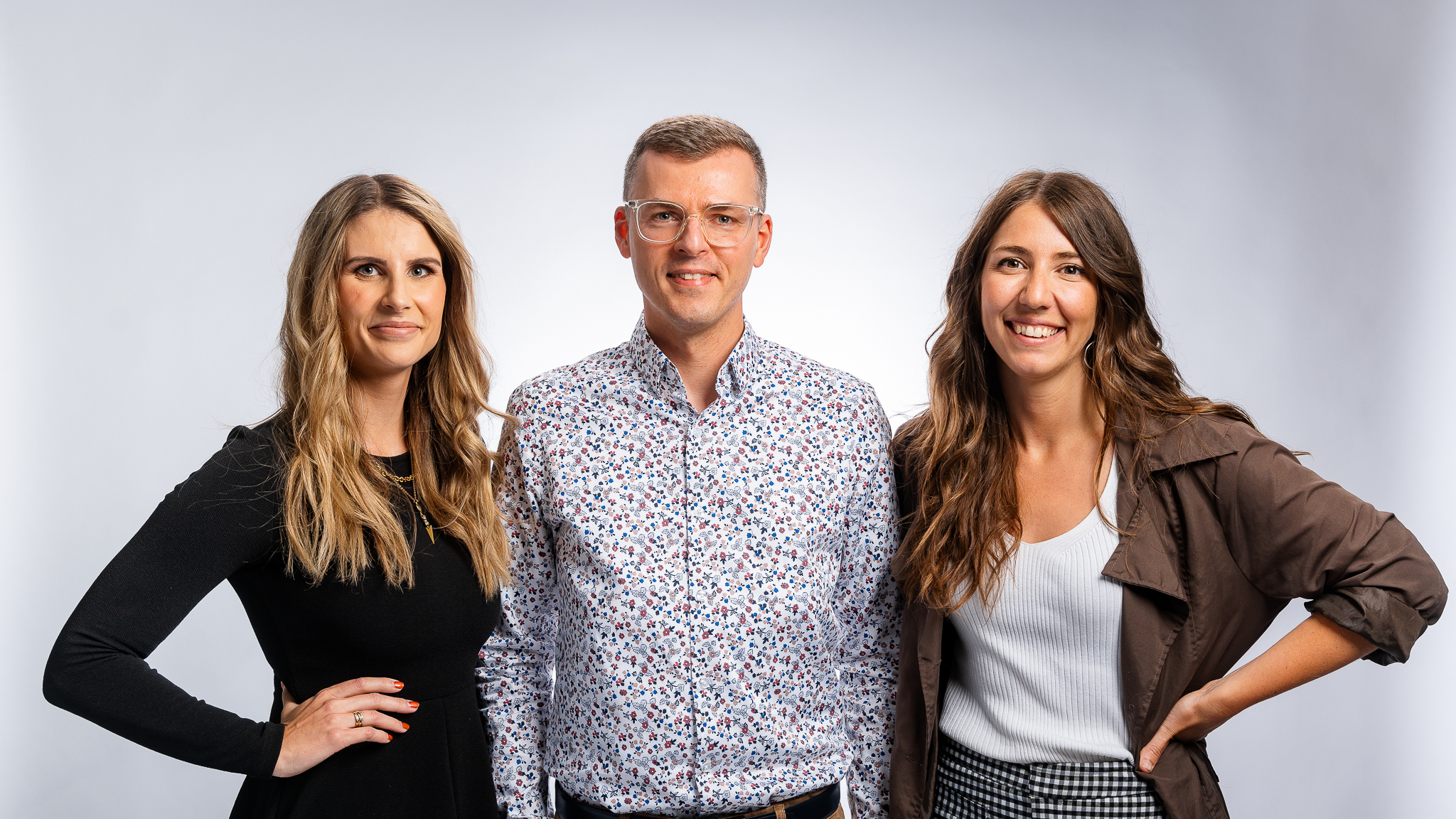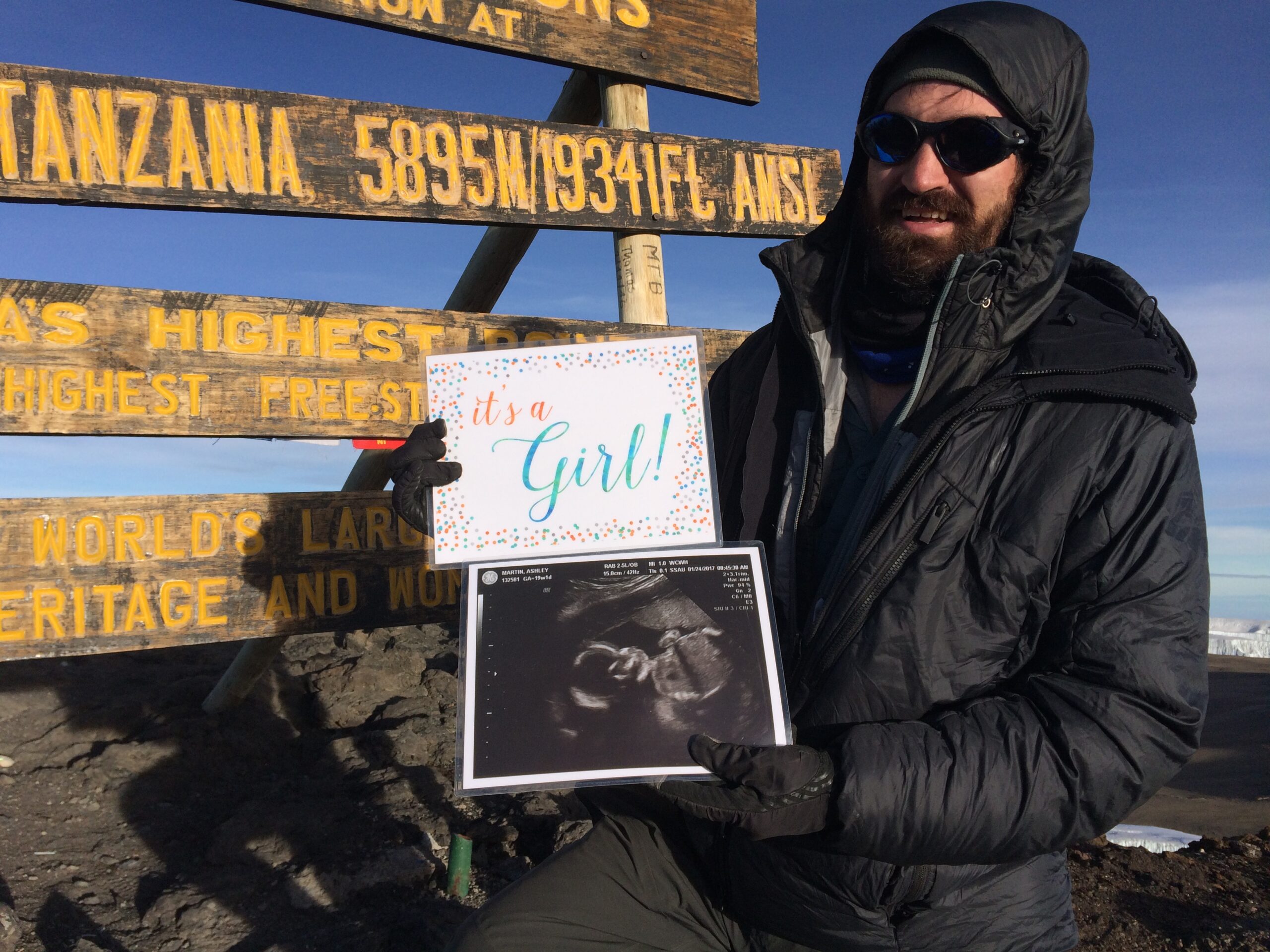By Thomas A. Parmalee
A company that was founded in 2020 in Saskatchewan, Canada, to help streamline estate planning, giving families more time to focus on grieving and healing, is starting to gain traction in the United States.
Cadence works directly with funeral homes and crematories to support families after a loss, according to Hannah Mason, partnerships manager at Cadence.
The company was co-founded by Rachel Drew, who serves as CEO, along with Krystian Olszanski, chief technology officer; and Rachelle Perron, strategic adviser (all pictured at the top). According to the company’s website, “After experiencing first-hand the difficulties of settling her mother’s estate, Rachel Drew (at far left in the picture) founded Cadence with the mission to make this process easier for those in similar circumstances. Drawing on 8 years’ worth of experience as a hospice volunteer and executor adviser, she understands how critical it is for families to take care of their estate settlement matters during what can be an especially vulnerable time.”
The company’s digital platform helps with “all the tasks required with closing out an estate – getting benefits and filing claims,” Mason said.
Cadence has a support team to help families navigate the estate settlement process as “human support is essential,” Mason said. “If a family has questions or gets stuck, or maybe it is more of a complex estate situation, they can connect with one of our support specialists.” She added, “We also help with grief support as well.”
Handling someone’s estate and grieving a loss are “directly embedded in each other,” Mason said. The platform helps with several common tasks, such as attaining Social Security benefits.
“There are some wild statistics, such as 82% of widowers have not received their full benefits,” Mason said. “People often lose money, not knowing it is available.”
Cadence also helps with identity theft protection, and it communicates with Equifax and TransUnion. “We can help make those notifications and protect their identity after death,” Mason said.
Insurance claims and determining whether probate is needed is another area where Cadence can help. For instance, some family members do not know if they can do a small estate affidavit or if they need probate. “We are not lawyers and do not replace the need for an estate attorney,” Mason said.
An overlooked task that often slips people’s attention is closing out digital accounts, such as Netflix, Facebook and Amazon, which can tie into identify theft, Mason said. “We can help close out bank accounts and those digital accounts,” she said. “For people on our platform, we can also send reminders on what forms will be required during tax season.”
Asked about leveraging artificial intelligence, Mason said Cadence currently uses AI behind the scenes and prioritizes human interaction to ensure that families are treated with compassion.
A Suite of Services and an Expanding Roster of Partners
Mason joined Cadence over two years ago after it began doing business in the United States. She is based in California.
“My background is in grief support,” she explained, adding that she experienced loss at a young age.
Right now, Cadence has several dozen partners throughout the United States and Canada, with about 60% hailing from Canada.
While Cadence is primarily focusing on the funeral home space, it also works with financial institutions and wealth managers.
It offers two main services.
Its Legacy Planner product helps people plan their affairs ahead of time, and its Executor Assistant product helps a family at the time of need. Both products “communicate with each other,” Mason said, explaining that many at-need families use the Executor Assistant product before deciding to opt in to the Legacy Planner for prearrangements – or vice versa.
“The more that people have things in order ahead of time, the easier it makes the role of the executor,” Mason said. “It makes it simpler, so they can sort through things more easily.”
The Executor Assistant tool has a few opportunities for people to raise their hand about preplanning, Mason said. “Being able to generate those leads and provide those to our partners is important,” she said, adding that while some partners may have previously provided families with articles about estate planning or directed them to a simple website, they appreciate the more robust solution Cadence offers.
The opportunity to ask about preplanning is a newer feature on the platform, but so far, Cadence has been surprised by how many customers opt in to being contacted with more information about preplanning, Mason said.
“When people are taking care of these types of things and seeing all the work involved in taking care of their loved one’s affairs, it gets the wheels spinning as they think about their own future and other family members,” she said. “While that was not why the company built this tool, we quickly realized this was relevant to funeral homes and their business, so it is nice to be able to offer a feature that helps them further their business and is not just an extension of care they offer to families.”

The Details
Funeral homes that work with Cadence typically pay a monthly subscription fee based on annual call volume – and pricing is affordable, so firms can include it as an added service in package pricing, Mason said.
“Most funeral homes roll our solution into their administrative fees or embed it into current packages,” she said. “They may include it in a top-tier package or use it as a differentiator between packages.”
Some early partners have experimented with reselling the solution, buying it from Cadence on a per-user basis and adding it as a line item on the price list, she said.
The company prefers the subscription model, however, as its overarching goal is to help as many people as possible and make the solution available to everyone, Mason said.
“Some people with the smallest estates often have more complex situations in handling their affairs,” she observed.
Cadence works with both small and large firms – any business that wants to think more about how it is providing aftercare to families, she said.
“There is a lot shifting right now in end-of-life and death care,” Mason observed. “As cremation rates continue to rise and as new forms of body disposition take hold, younger families want different things than their parents. This is a prime opportunity for the profession to think outside the box and think about what their role is in supporting people at the time of death.”
There are a few prompts throughout the Cadence platform where families can respond to a survey and leave a Google review, which can also help funeral homes, she said.
As for grief support, the company publishes a newsletter that families can opt in to receiving through the platform, and it also hosts a monthly virtual grief group that is run by certified grief educators and experts. Audio recordings to help families navigate grief are also built into the platform.
“The approach we take is very educational and is all about normalizing grief,” Mason said.
She added that since coping with grief sometimes depends on faith practices, people can look at it and deal with it differently. “So, we stay a little bit more in the field of neuroscience, which looks at what is really happening, so people can understand what is normal,” she said.
If a survivor needs more support, Cadence can provide a referral to a grief counselor or local grief group or work with the funeral home to provide further assistance to a family.
Sometimes, a funeral home has someone they work with in their community to help a family who may need a higher level of support, she noted. “We can embed referrals to the platform if there is grief support a funeral home is already using,” she said.
When Cadence began in Canada, the company founders always intended to expand the solution to make it available throughout North America, Mason said.
Once the model was built and tested in Canada, it was adapted to comply with U.S. regulations and systems. For instance, Canada offers a Canada Pension Plan as opposed to Social Security in the United States.
The estate process in the United States tends to be more complicated than in Canada, Mason said, with total possible tasks to settle an estate in Canada being 800 to 1,000. In the United States, the platform typically projects possible tasks to be in the 1,800 to 2,000 range, she said.
As Cadence spreads the word about its solution, it is being proactive about attending conferences and sharing how it can help funeral homes. It is a preferred partner of Selected Independent Funeral Homes, Mason noted.
Mason hopes that more funeral homes will explore using Cadence to help their families.
“I talk with funeral professionals on a daily basis, and they want to guide families, but they feel like it is out of their scope to speak to the estate,” she said. “They carry a fear of giving the wrong information to a family or directing them in the wrong way.”
Being able to provide an added level of service but working with a partner to do so could be the perfect solution, she said.
“When families ask about the insurance piece or probate, instead of sending them to a Google search that may be a rabbit hole, you are able to say, ‘We have a partner’ and you can guide them through that,” she said. “It can take stress away from families and give them a clear direction.”
Follow FuneralVision.com on LinkedIn.








